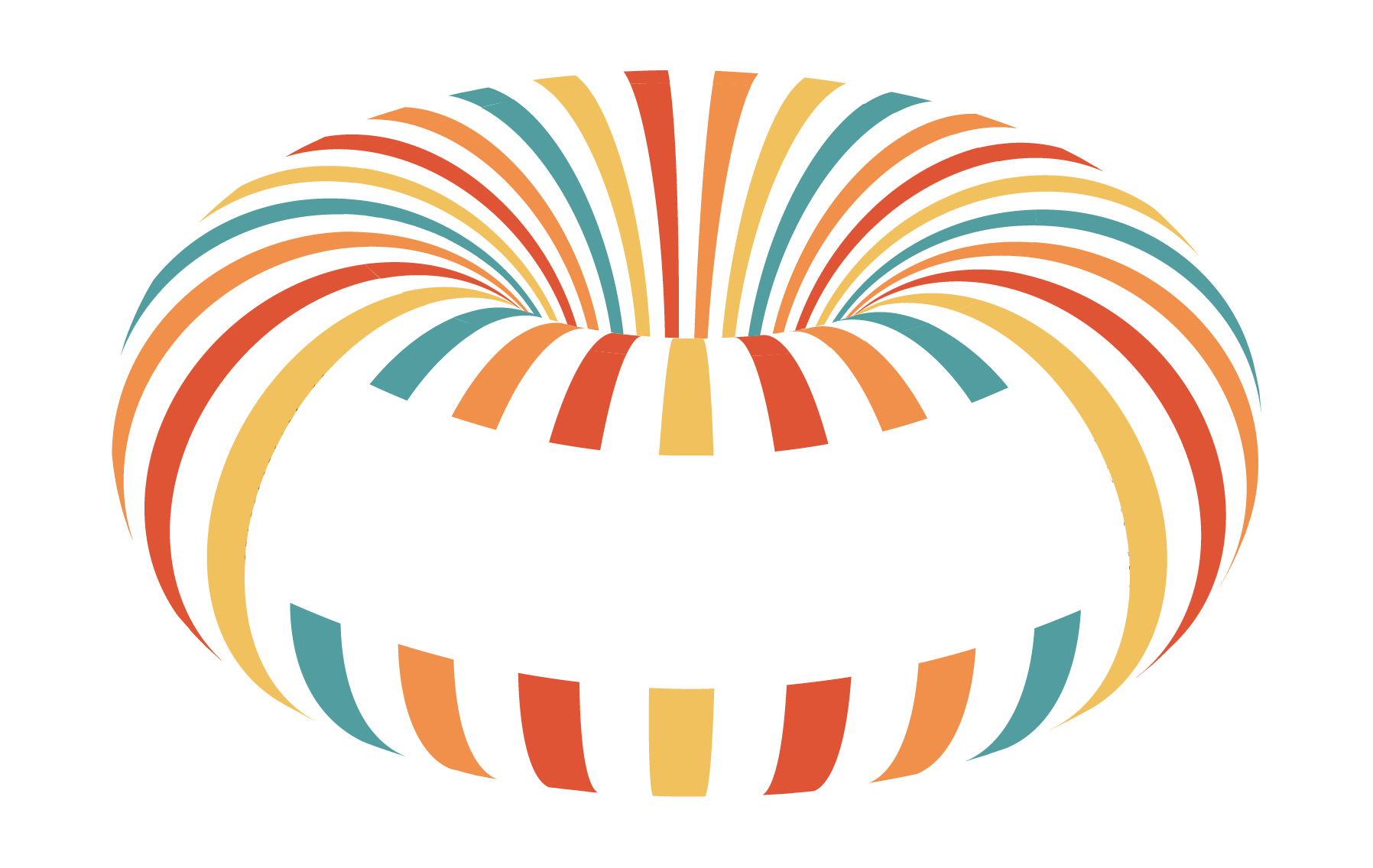Tuesday 28th November marked the start of the TORUS project with its kick off meeting taking place at Clifton Hill House in Bristol. It was an opportunity for project members from both the University of Bristol and Newcastle University to meet each other for the first time, to discuss the project and to share their ideas.
The day started with an icebreaker session facilitated by the Project Manager, Mae Hazell, where everyone guessed which fun facts belong to which project member and got to know each other a bit better. This led into the first session, where Professor Ian Craddock, the project Director, discussed the TORUS mission: to develop a novel platform of sensing technologies for use in patient’s own homes that measures changes in specific mobility-related behaviour over weeks and months. This technology could then be deployed in homes during clinical trials to allow objective data collection to analyse whether a medicine is effective. Professor Lynn Rochester, the project co-Director, gave an overview of Parkinson’s Disease and its impact on patients, carers and the cost to the NHS.
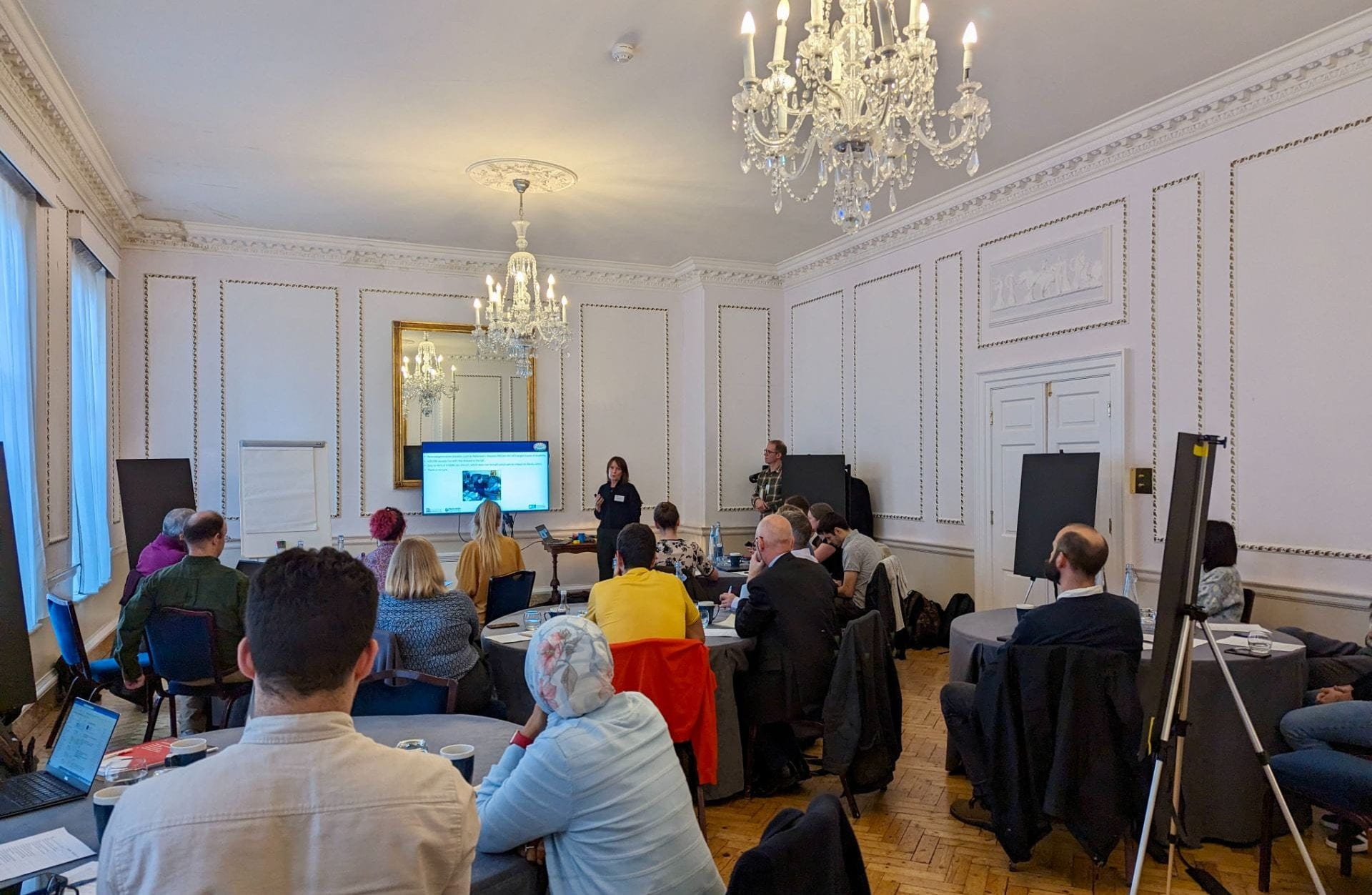
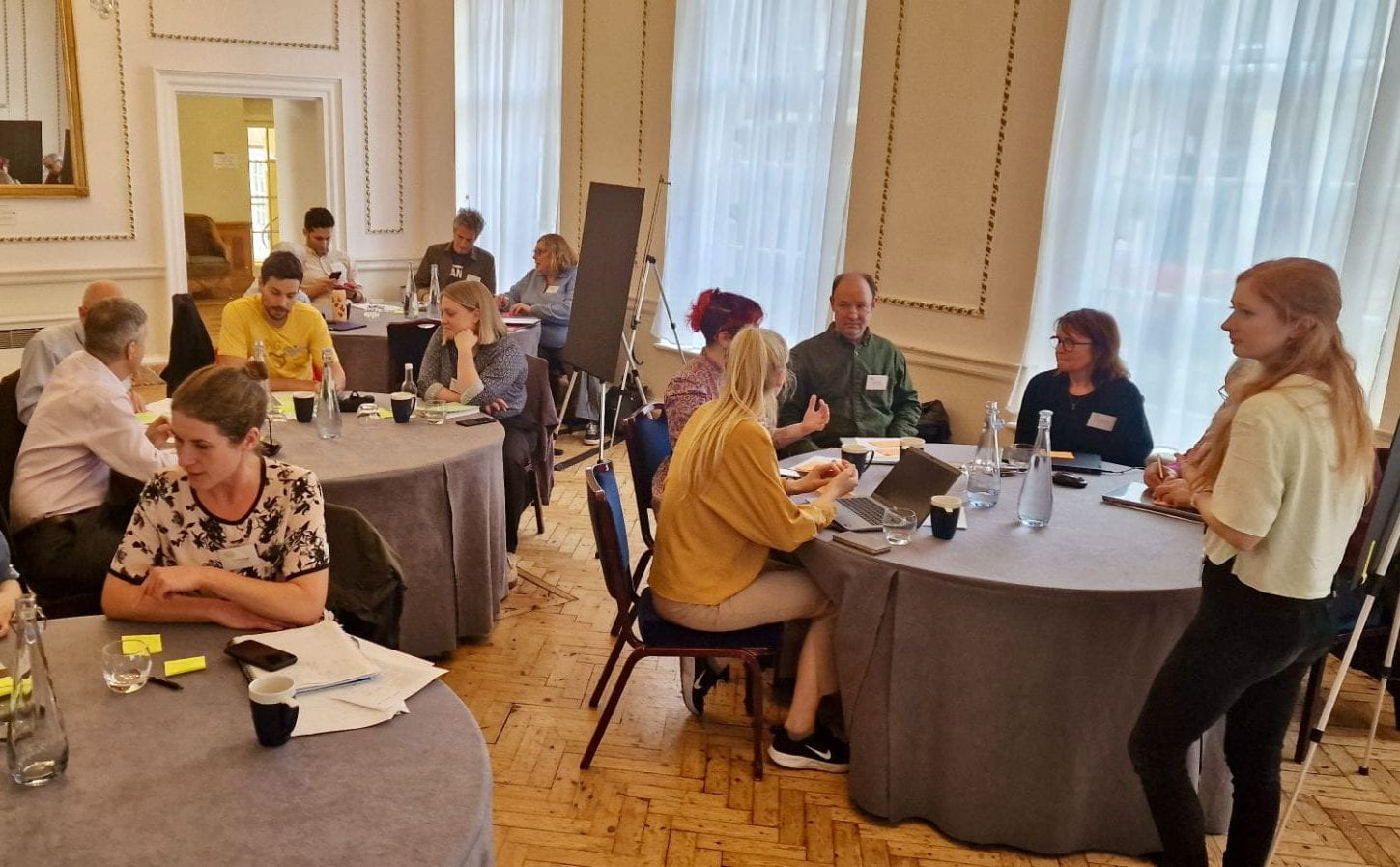
Ian continued the discussion on new digital biomarkers that the project will deploy and explained how they will fit together in the project. Attention then turned to what the project success will look like and the clinical requirements for the TORUS technology. Both topics were followed up with individual and group activities, to gather suggestions and help shape the research aims. There were interesting discussions around what it is we actually want the technology to do, and how this could be achieved, bringing in expertise from numerous disciplines.
Some of the key aspects of what success would look like included patient life improvement and empowerment, developing state-of-the-art novel technology, use of this technology in clinical trials both for Parkinson’s Disease and other conditions, multidisciplinary collaboration and career development.
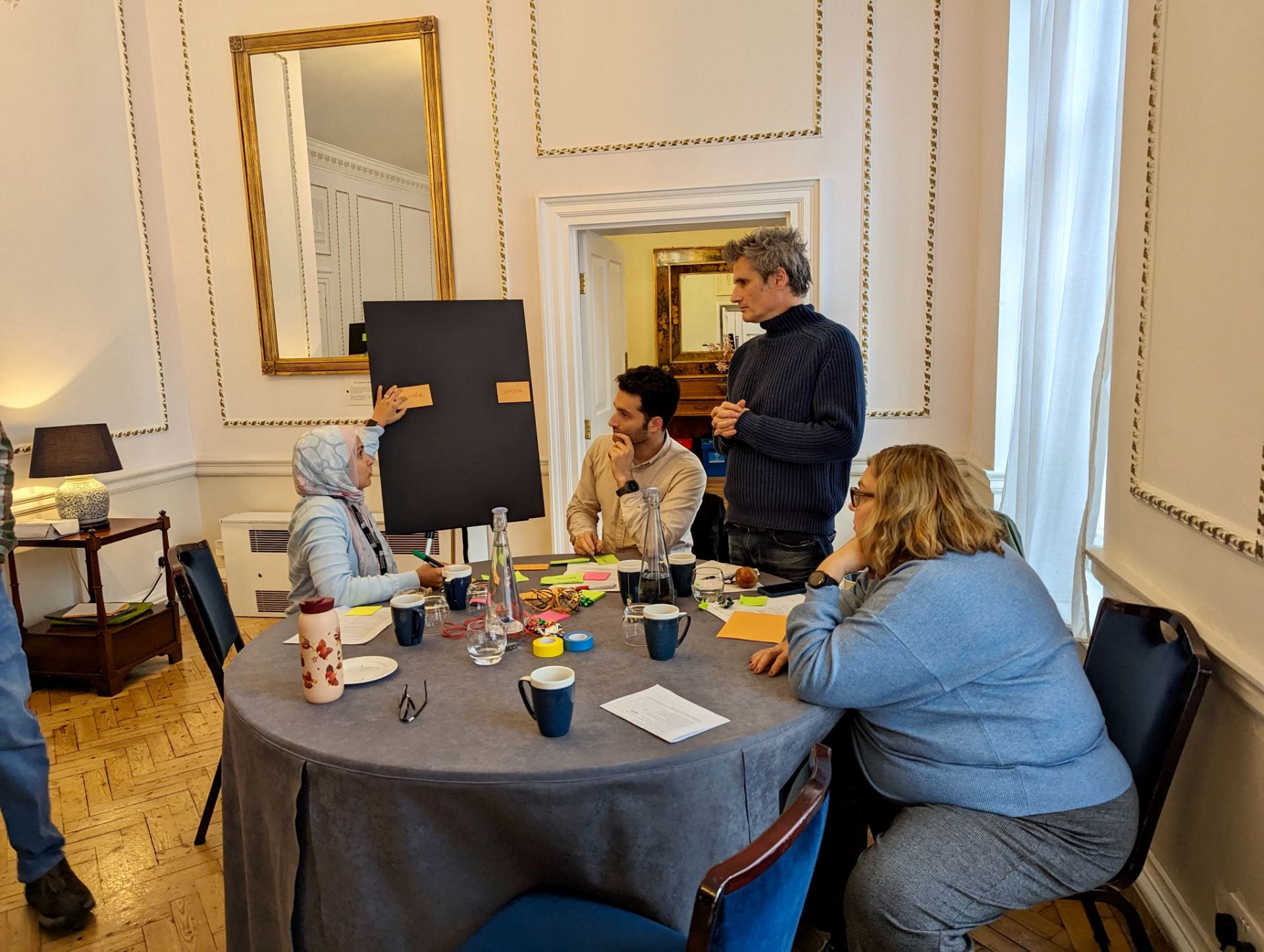
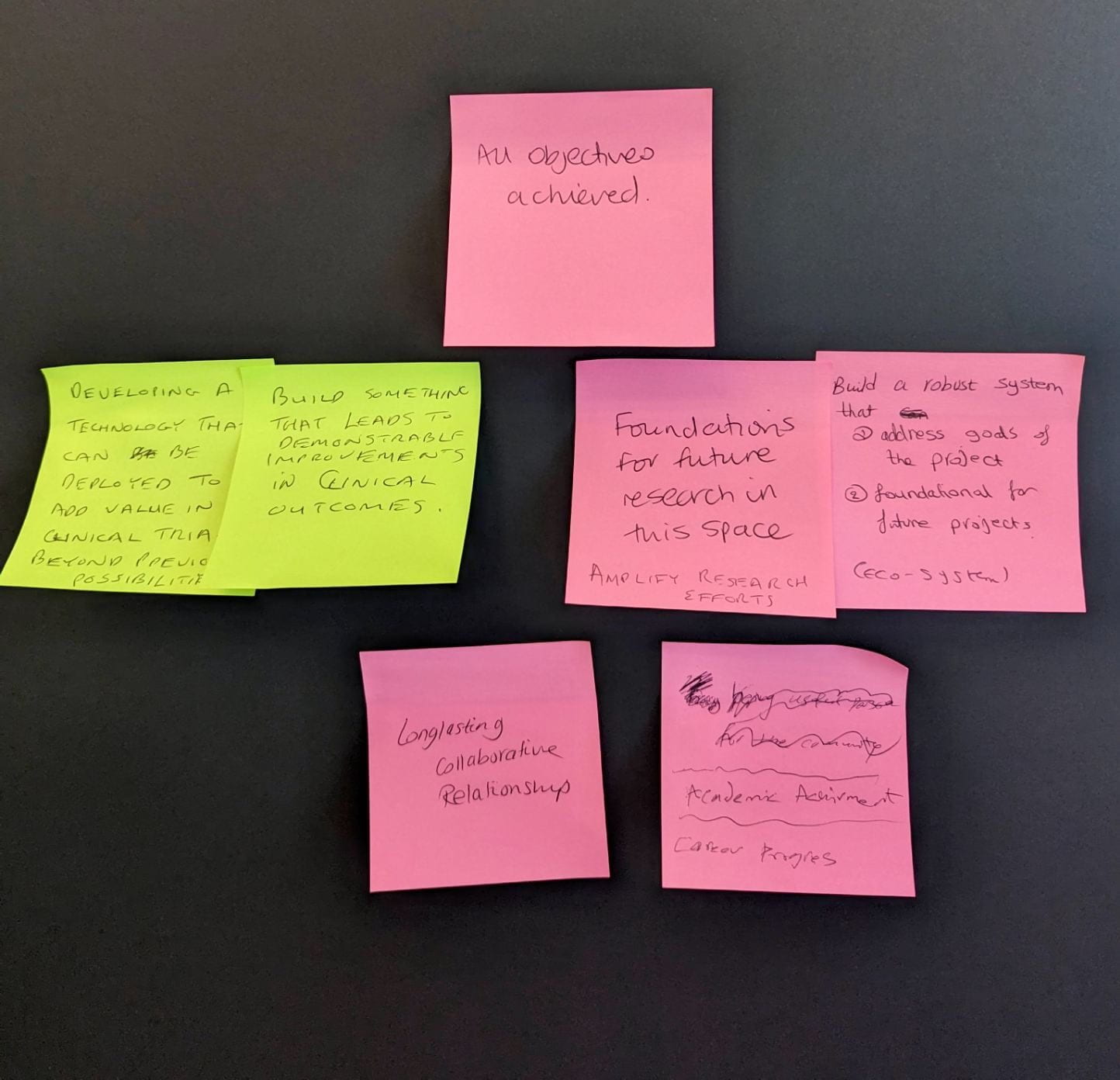
Following a quick break for coffee and biscuits, Ian gave a presentation on lessons learnt from the University of Bristol’s 10-year project SPHERE which deployed a platform of sensors in 100 homes. This was followed by a talk from Lynn about the on-going project Moblise-D which aims to connect digital mobility assessments to clinical outcomes.
After a hearty lunch the session focused on the TORUS Researcher Development Programme which will facilitate career development for researchers and early career academics. This programme will offer researchers the opportunity to spend time with patients, develop relationships with a mentor from a different university and attend annual workshops and short courses.
This was followed by a team activity thinking about how to best develop all project staff including later career academics and professional services staff.


The next part of the afternoon allowed the researchers too express their creative side! Teams were given arts and crafts and asked to explain graphically how the data will flow in TORUS and how different aspects of the technology will be linked – with a prize being awarded for the most artistic diagram. As you can see, there were some excellent efforts all round and we ended up with joint winners!
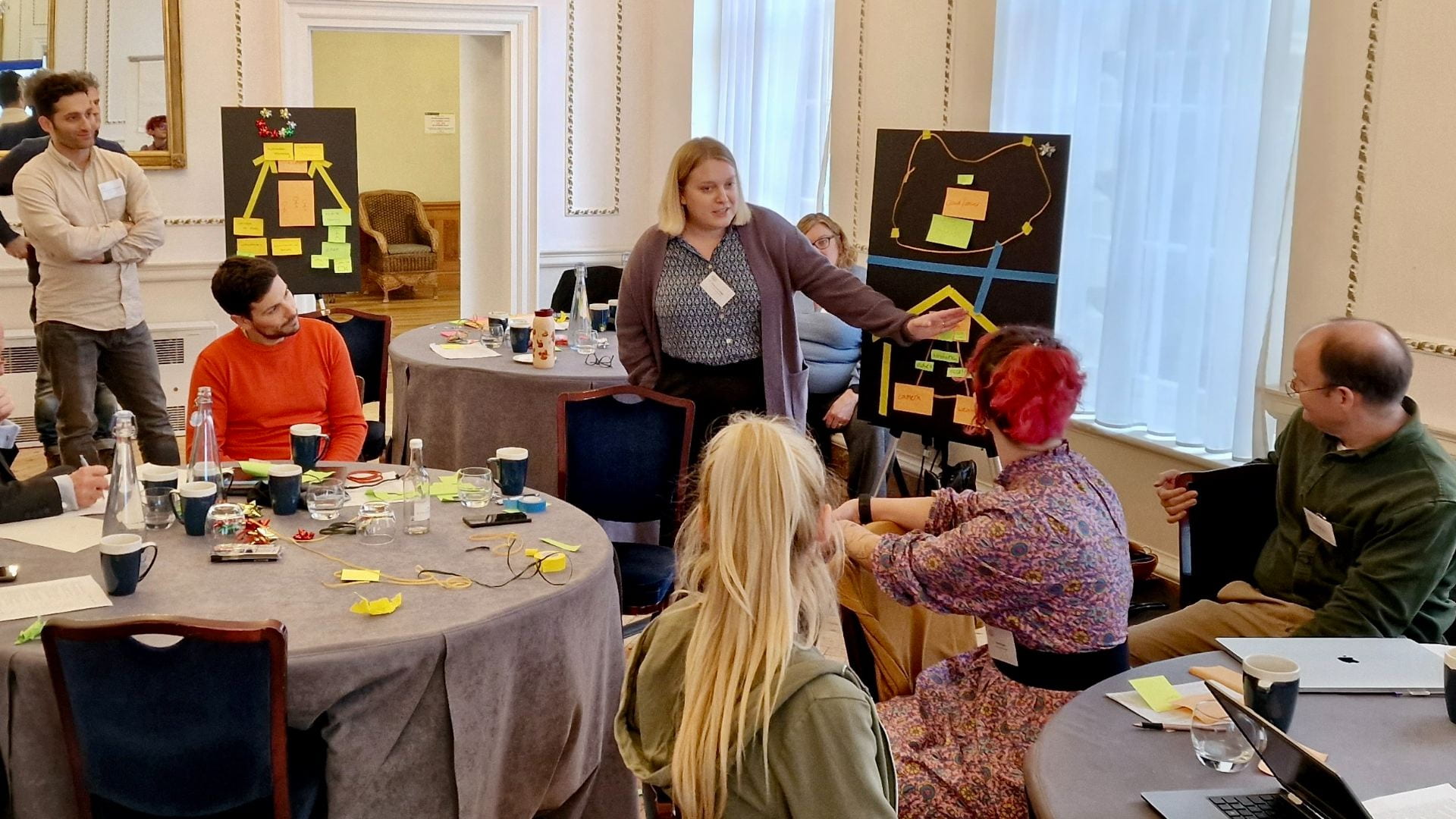
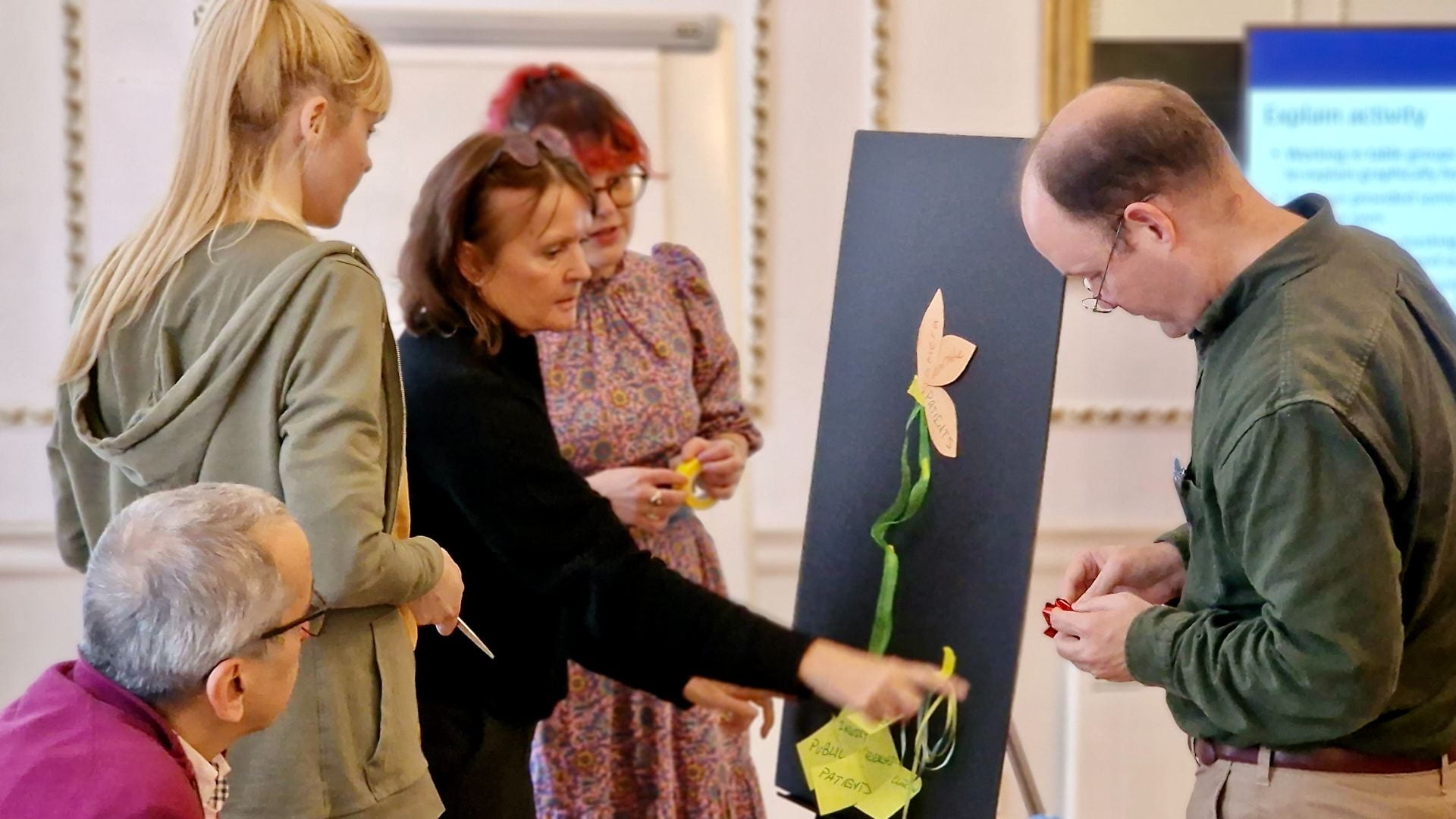
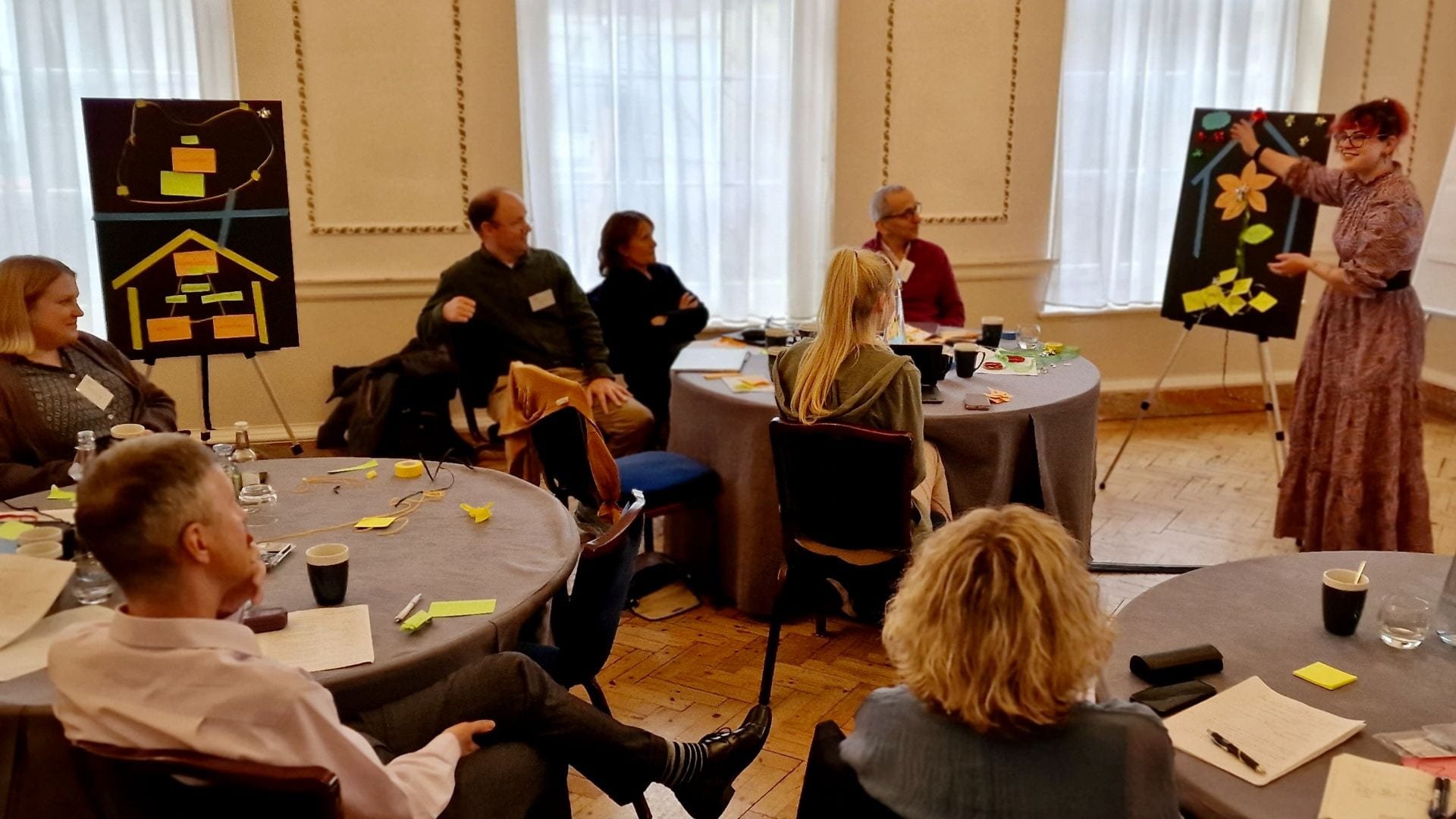
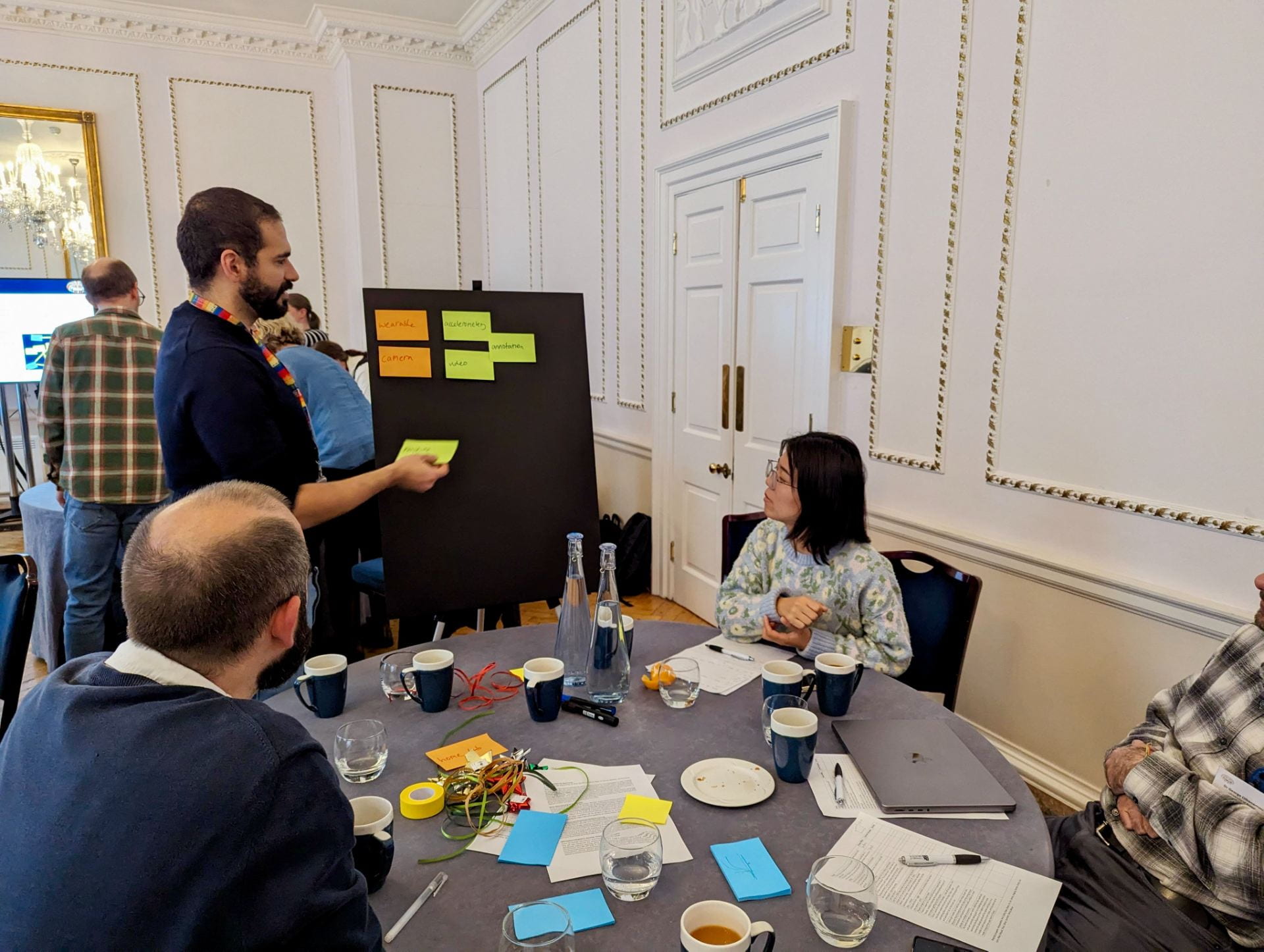
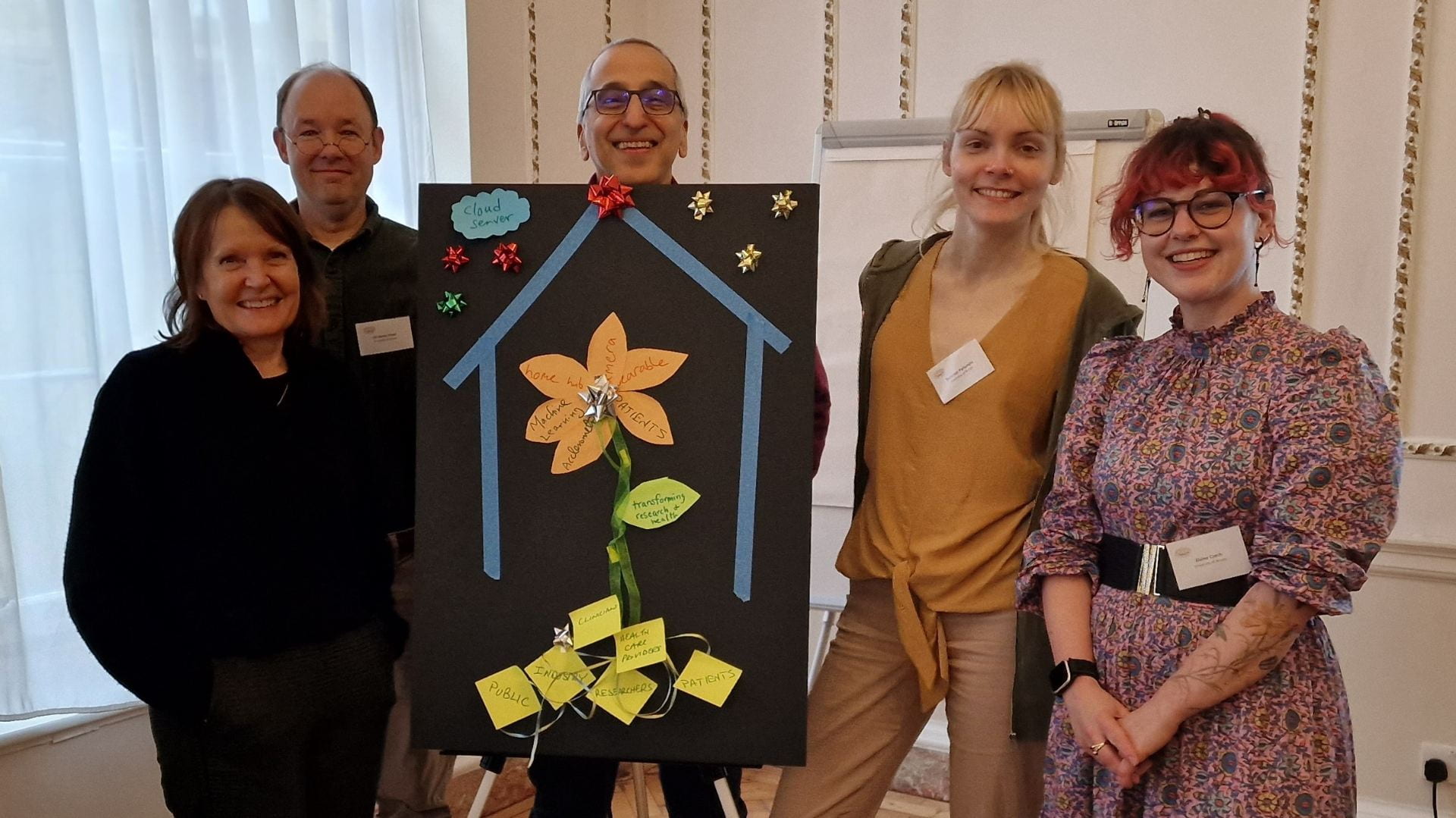
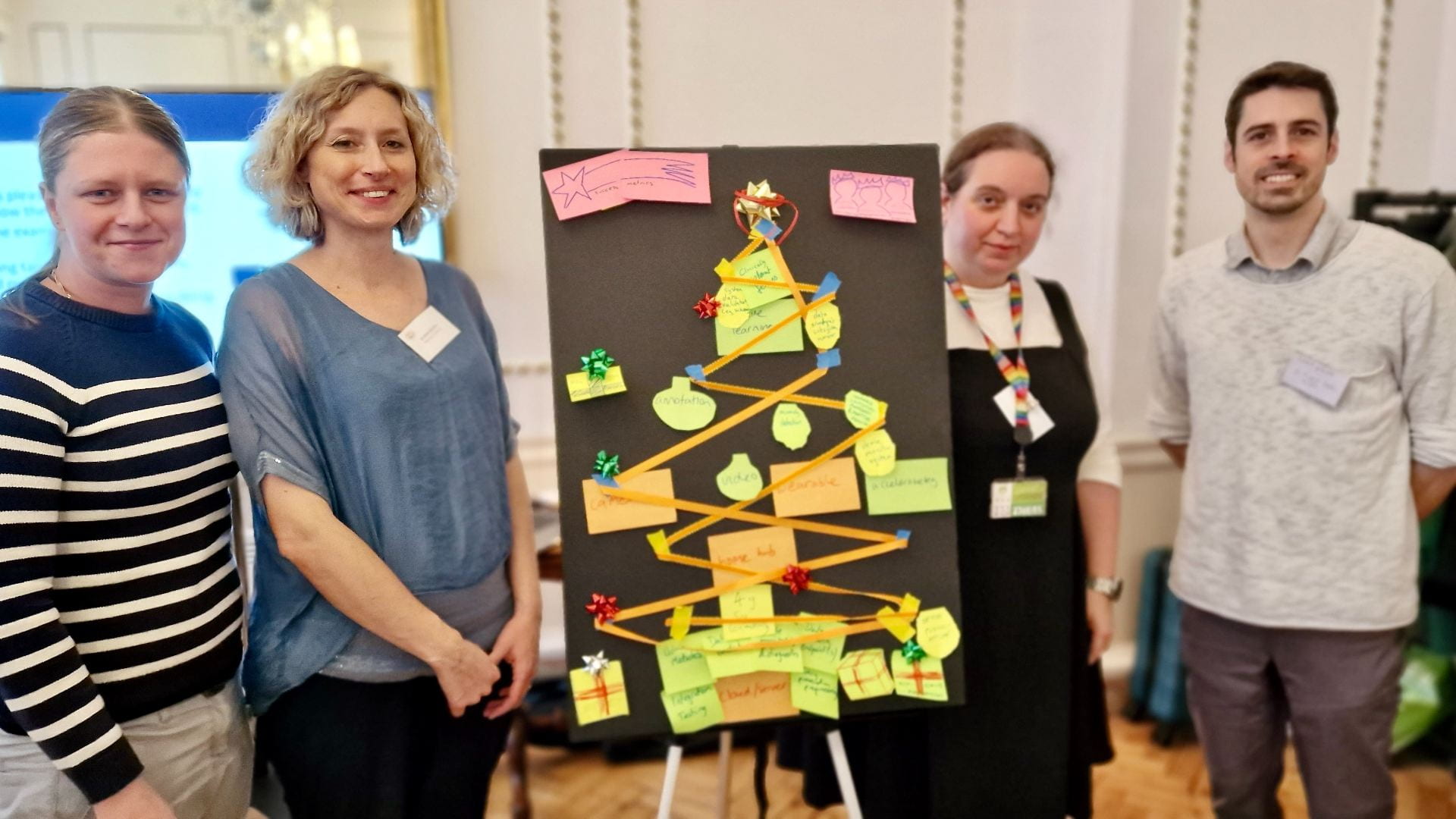
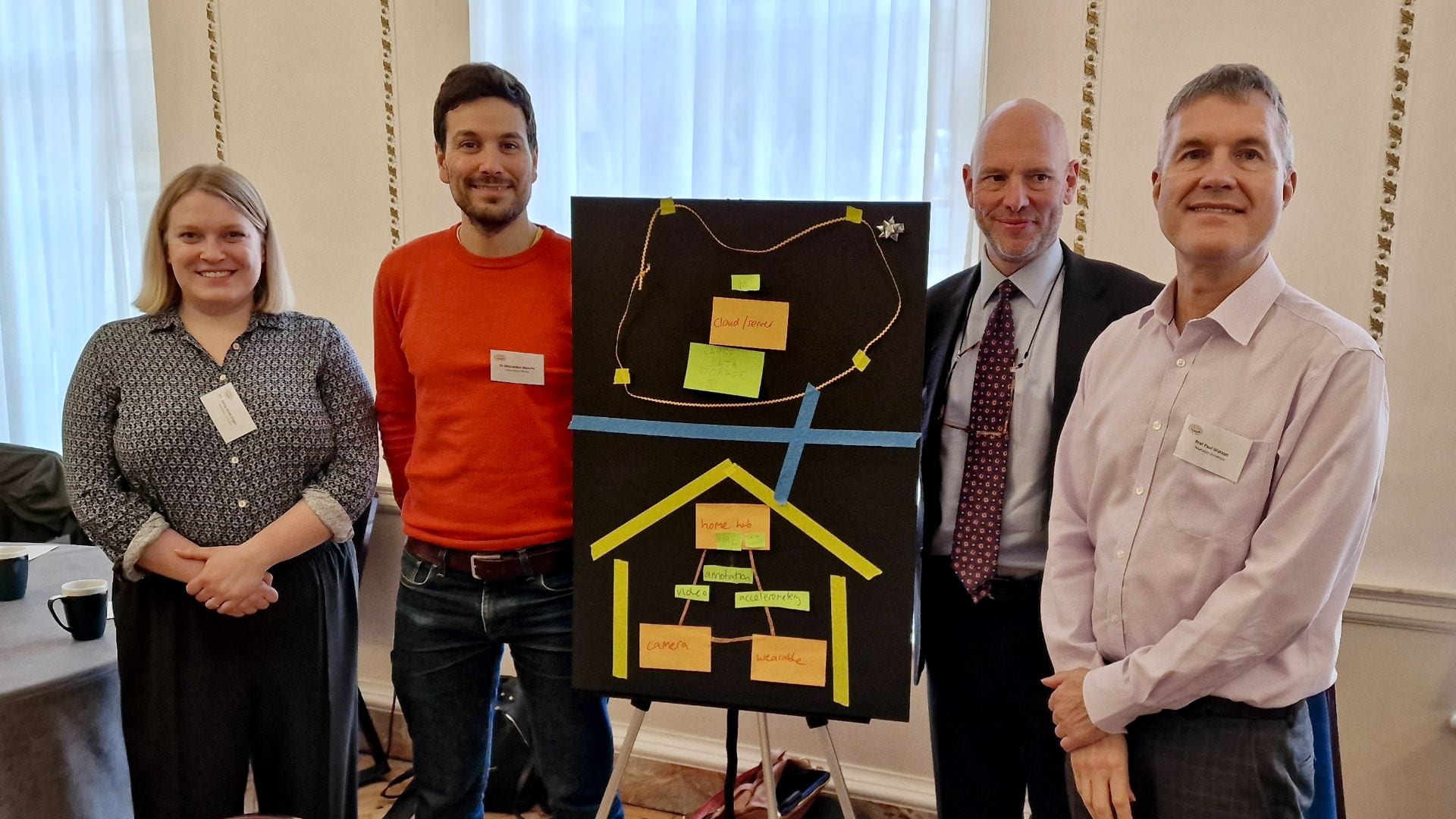
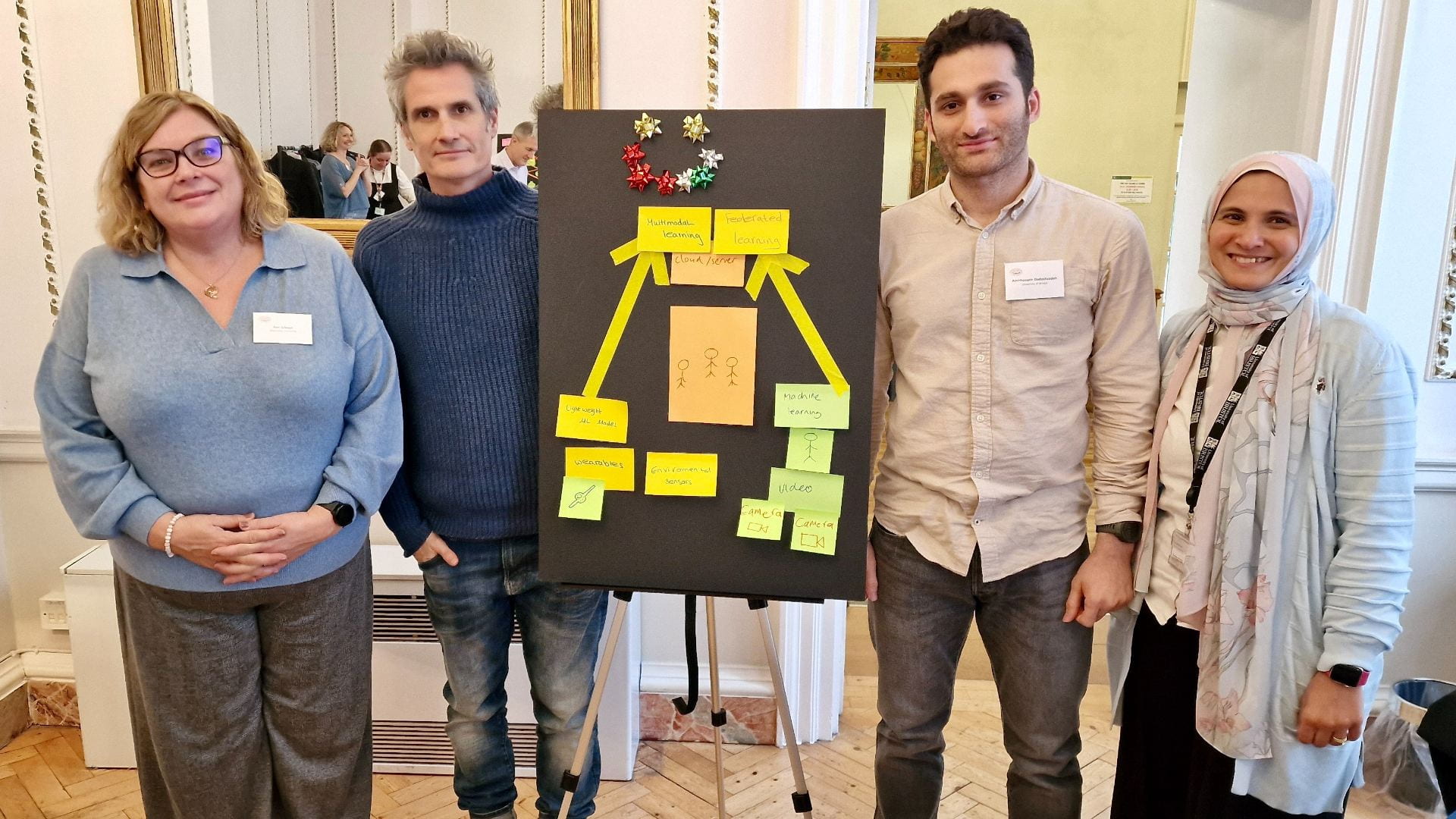
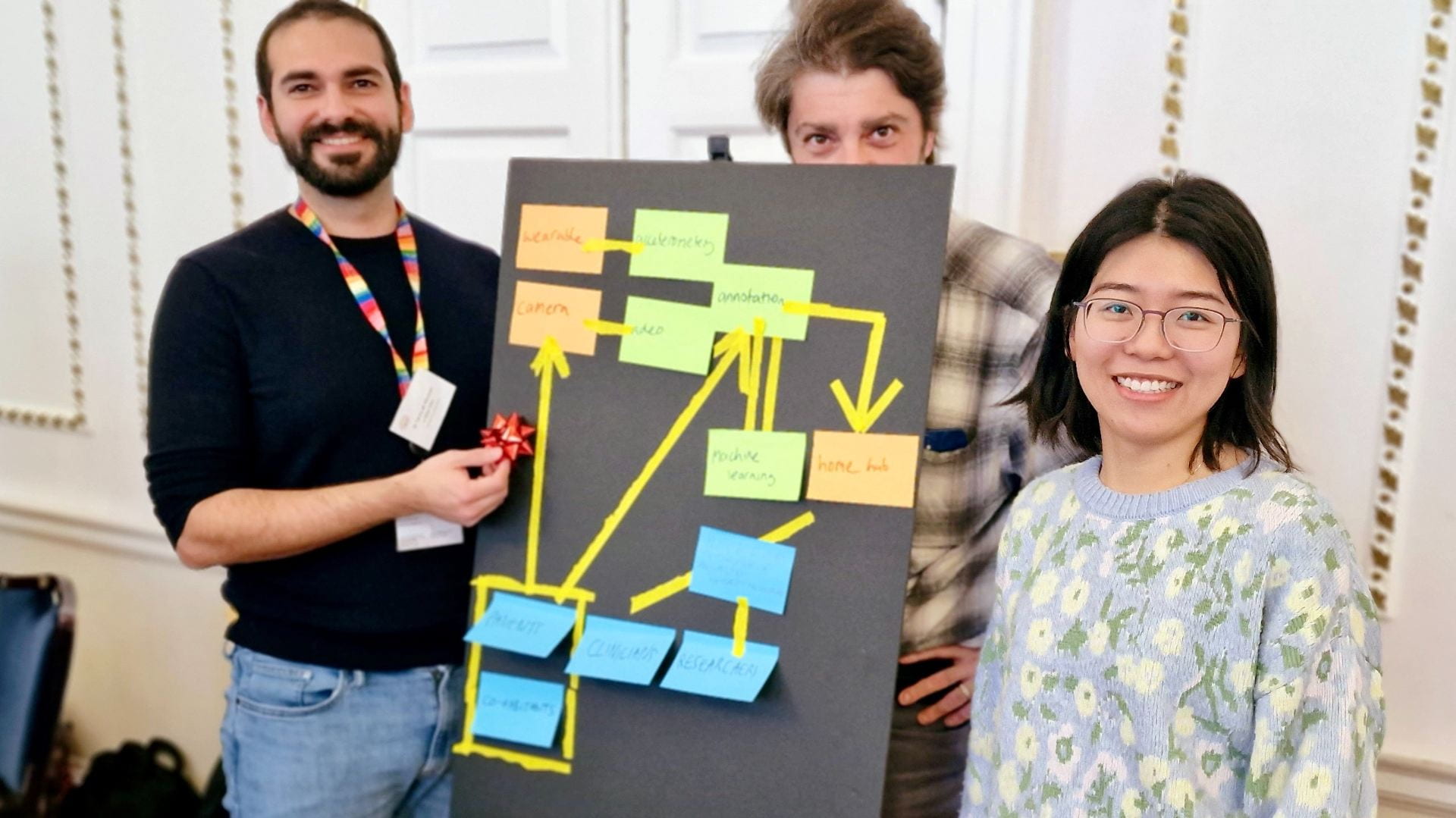
The last part of the day was an interdisciplinary group brainstorming session to broaden everyone’s understanding of the project. Cross work package discussions were encouraged, giving an opportunity for everyone to develop relationships with those they may not frequently encounter during the project delivery.
It was a great day, with productive outputs and a fun opportunity for the teams to meet and get to know one another. This was the first of many that the TORUS team are planning, which will be reported here, so make sure to check the website regularly for the latest updates!
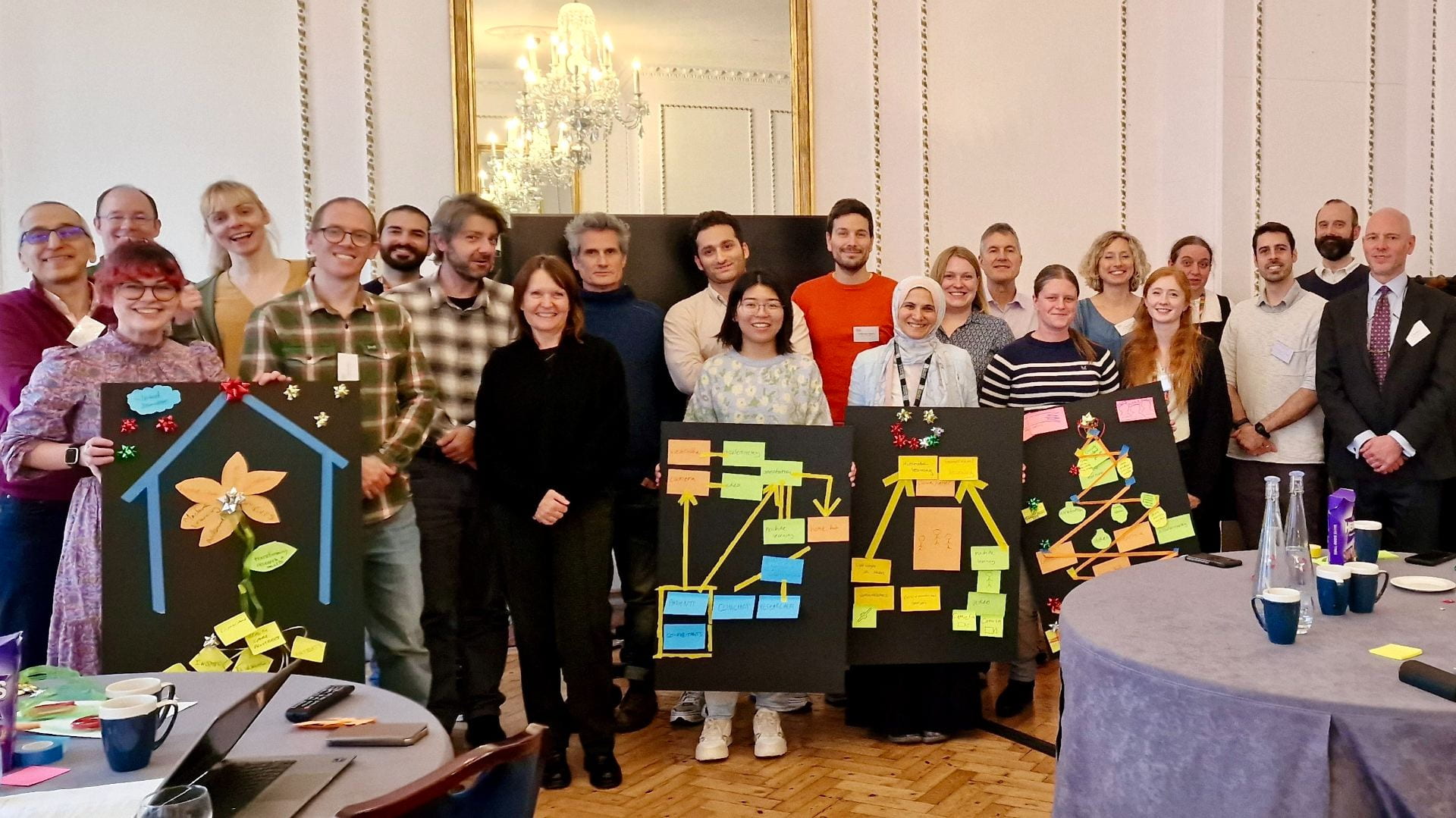
To find out more about the research and to keep updated with future news please email TORUS-project@bristol.ac.uk .
If you are a patient with Parkinson’s Disease and are interested in getting involved with the project please get in contact via the above email address.



